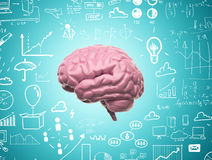
Yale’s Steven Novella of NEUROLOGICAblog, here:
Consider Novella’s two main ideas:
“[This is] the illusion that our brains evolved to have, a very compelling and persistent illusion – namely that the reality we perceive is real, rather than a constructed representation.”
and
“[This research] just slaps us in the face with this reality.”
Novella refutes himself. He first asserts that everything he knows is an illusion. Then he insists that his illusions have slapped him in the face with reality.
Goodness gracious.
If everything we perceive is an illusion, then how can we “know” anything, including such ambitious knowledge as “everything we know is an illusion”?
Novella senses this problem with his thesis and tries to elide it:
Michael Egnor, “Tales of the mind: A neurologist encounters the house of mirrors” at Mind Matters News
We predict fireworks in July. 😉
Also by Michael Egnor vs. various others on the immaterial mind:
Atheist psychiatrist misunderstands the evidence for an immaterial mind. Patients with massive brain damage were shown to have a mental life.
Do epileptic seizures cause abstract thoughts? A psychiatrist argues that “intellectual seizures” can occur. He is mistaken. Seizures never evoke abstract thought.
and
Atheist psychiatrist misunderstands the evidence for an immaterial mind. Patients with massive brain damage were shown to have a mental life.
Also: Four researchers whose work sheds light on the reality of the mind The brain can be cut in half, but the intellect and will cannot. The intellect and will are metaphysically simple
and
How can consciousness be a material thing? Maybe it can’t. But materialist philosophers face starkly limited choices in how to view consciousness. In analytical philosopher Galen Strawson’s opinion, our childhood memories of pancakes on Saturday, for example, are—and must be—”wholly physical.”
Follow UD News at Twitter!